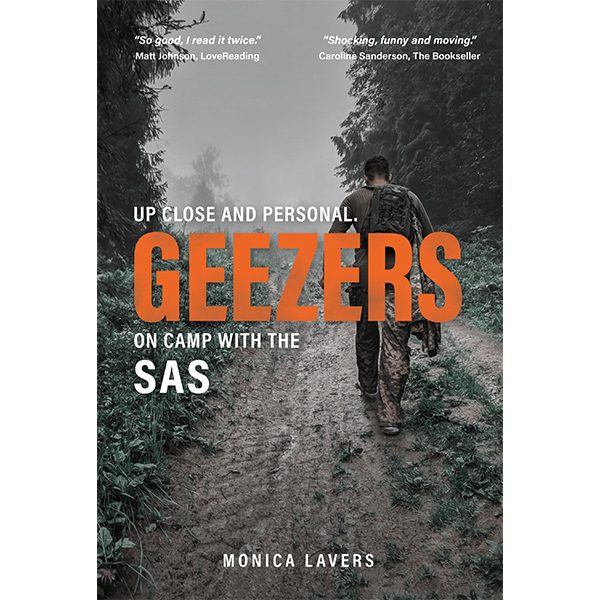
Mental Health Awareness Week: Mental Health and the SAS
To mark Mental Health Awareness Week and the importance of talking about mental health, we thought we’d ask Monica Lavers, author of ‘Geezers: Up Close and Personal, On Camp with the SAS’, about her experiences with mental health in the SAS. Mental Health Awareness Week is particularly important this year, since so many have been affected by the coronavirus pandemic.
Mention mental health and the SAS and it’s not unreasonable to think that these ‘Terminator’ soldiers are the least likely to suffer from distress or feelings of hopelessness. Their high-octane lives, relentless schedules and the horrors of warfare combined with the need to disguise their identity outside the confines of their headquarters or training camp are all peddled in ‘action’ books and films as necessary to the job, with elite soldiers easily able to face their job with fortitude and resilience. The SAS soldier’s mental state is bound to be impenetrable, they say.
I worked among the SAS at their headquarters for three years and I can tell you, they have lives of low-grade but consistent pressure. It never stops. We all have problems like trying to please the other half, doing our bit with the family or boss, but we can give leave, ‘throw a sickie’, or change jobs. The SAS can’t do any of this.
Signed on to the military for a set period of time, often twenty-two or more years, they have to give a year’s notice to leave the military. I can’t even imagine what it must feel like to have my freedom limited like this and to be fair, they knew this when they joined up. But they were young men, often straight from school. Now, with wives and families and added to this the burdens of being the most prized, elite soldiers in the world it’s a different story. They’re expected to be fit, work all hours and expected to deal with it.
The SAS don’t get posted. They stay in Hereford for the rest of their military career, and the problem I heard the most was the wives not settling in Hereford, and eventually moving back to wherever home was, taking the children. It was heart breaking. The sadness of these men being apart from their family was one of the worst things I witnessed.
There is help, of course. The welfare department is magnificent at dealing with practical matters, but they can’t take away the loneliness. And personally, I think there’s a gap in the help available. These elite soldiers can’t go to a pub and moan to the barman. They can’t chat about it to a neighbour. Their identities are secret. Inside the gates? Everyone’s busy or away for months. Often they ended up in my store, a grim but anonymous place, and moaned to me. I was security cleared and knew who they were. The stress, anguish and feelings of helplessness they suffered were heart breaking yet they felt better for getting it off their chest and that’s all it took. No appointments with counsellors (though counsellors are undoubtedly necessary sometimes), no notes or action taken. Often, the reassurance to pop in anytime and they were ALWAYS welcome, was enough of a safety net for their stress. I was never going to say I was too busy – as long as they didn’t mind perching on some boxes and having a brew from a plastic cup they could stay as long as they liked and talk, and that was what mattered.
Mental health means different things to different people. I spent five years volunteering as a Samaritan and I only remember three people actually took their own lives, the main problems being despair and loss. One soldier who I knew well tragically took his own life in May 2018. He had talked to nobody.
I still believe it’s the quiet, calm, talking without analysing aspect which can help best in certain circumstances. Sometimes it can just take telling someone with no vested interest, who might need your help and advice too one day. People need to be able to talk to each other, and to not be afraid of terrible feelings – get it off their chest in other words. Sometimes you need to be able to go into the void, honestly speak your mind, and know that you can come back.
Monica Lavers is a former Civil Servant working as support staff with the SAS from 2015-2018. She was also a Samaritan volunteer for five years.
Featured Publications

